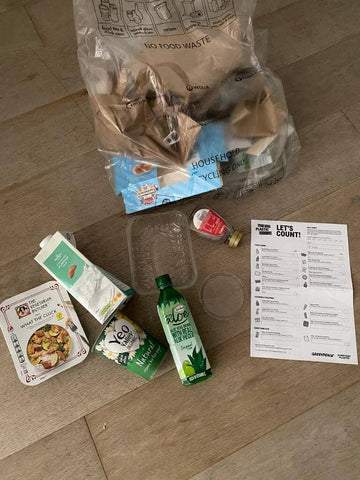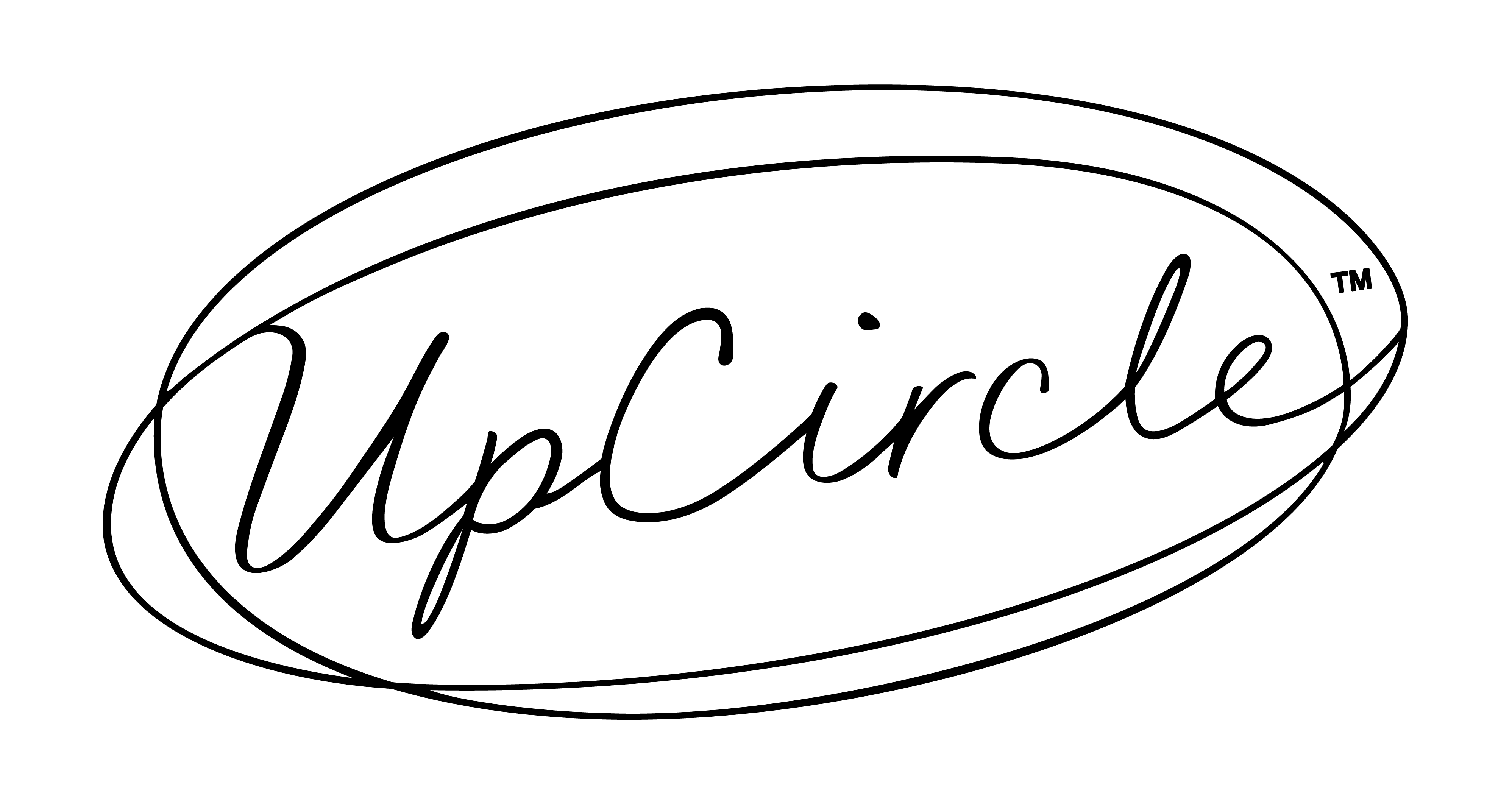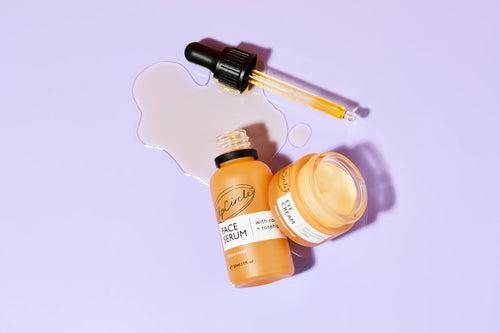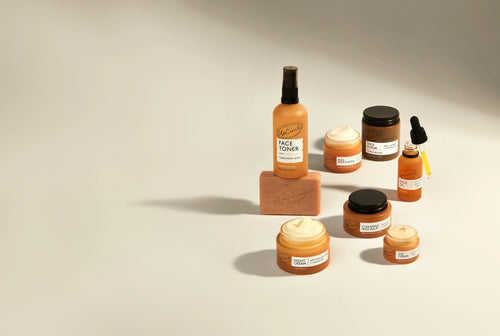It is safe to say that team UpCircle were surprised with how much plastic we used in our everyday lives without realising it. With fresh food sold in plastic packaging, no refillable options, and household products in plastic packaging, avoiding single-use plastic was impossible. This emphasises the urge for the government to do more to tackle the rising plastic pollution crisis. We of course must do our part but so does the government. Ironically as a business, we pride ourselves on using none to very little plastic (which is 100% recyclable) but when it comes to our personal lives, we struggled. Participating in the big plastic count was definitely an eye-opener for team UpCircle. Before we dive into the team’s thoughts and experiences during the week, we wanted to bring your attention to the current plastic pollution problem.
Plastic is everywhere! from plastic straws, bags, single-use bottles, and food packaging to possibly your favourite snacks and everyday essentials- it is fair to say that plastic use is widespread. Even though it is undeniable that plastic provides various benefits in our society, it is not enough to say that we overuse it without thinking about the consequences and without seeking other alternatives. Worryingly, plastic waste is becoming a huge global problem and not everyone is aware of how much plastic they use and why it is detrimental to our planet. Across the country, households of all shapes and sizes, schools, community groups and businesses will have to throw away plastic but what happens to it? Its frequently either dumped carelessly in landfills which take decades to decompose or in rivers in developing countries before ending up in the ocean, where it threatens marine life.
Why is reducing plastic waste important?
- It prevents pollution by lessening the number of new materials used
- Saves energy
- Reduces greenhouse gas emissions which contribute to climate change
- Reduces the amount of waste sent to landfills in most developing countries
- Saves you money since most reusable items work out cheaper than constantly purchasing more plastic
- It is better for human health as microplastics can be found in water and food which can be toxic causing various health issues
- Saves animals- millions of animals are killed by plastics every year through consumption that has been left on land or in the sea.
Let us help you visualise the problem:
"Plastic production increased exponentially, from 2.3 million tons in 1950 to 448 million tons by 2015. Production is expected to double by 2050. What is more concerning is that more than 40% of plastic is used just once, then tossed which contributed to more than 5 billion pieces of plastic floating in our ocean”
-National Geographic-2019
Not good. But as a business are aware of the problem and have always been committed to reducing our plastic use wherever possible. For example, during Black Friday, we offered free refills, saving 1,200 pieces of packaging in a period known for excessive consumption. We simply can’t cope with the amount of plastic on our planet nor the amount that countries produced. For this reason, our attitudes and behaviours towards plastic must change to ensure a safe and healthy future for our planet. It’s time we are part of the solution and not be part of the problem. We have included some tips to incorporate into your everyday life to reduce plastic:
- Bulk food shopping- avoid pre-packaged foods by choosing bulk or loose food.
- Takeaway cutlery & containers- choose to refuse plastic cutlery and takeaway containers
- Bring a reusable coffee cup or dine-in at your local café
- Bring your own reusable shopping bags and help reduce plastic waste
- Refuse plastic straws when buying a drink and bring a reusable alternative like a metal straw
- Swap liquid soap for bar soaps
- Try shopping in-store for clothes instead of online to reduce plastic packaging
- Use refill options like refill stations or our refill scheme (hyperlink)
- Avoid excessive food packaging – buying loose fruit and veg is cheaper than pre-packaged alternatives.
- Switch to paper, glass or metal alternatives
- Buying second-hand- you can often find good as new items
- Buy less- only buy what you really need as overconsumption of unnecessary items can end up polluting our ocean
We asked the UpCircle team some questions about their experience participating in the big plastic count. Here are their thoughts:
Were you surprised about the amount of plastic you counted and was it more or less than you expected?
"Yes, it was more than I expected. I didn't realise how much plastic was in everyday things and the additional plastic in some products. It really opened my eyes to how much plastic I use."
What's your top tip for others for reducing their plastic?
"I found the most plastic I used to be from food wrappers. Bulk cooking lunches for the week reduce a large amount of plastic instead of buying shop lunches every day!"
Harry:
Were you surprised about the amount of plastic you counted and was it more or less than you expected?
"I was quite surprised as I never even thought about the little things, I was eating every day that are wrapped in plastic - I definitely use a lot more than I thought"
Are you going to try to cut down the amount you use? If so, how?
"I will try to cut down, I think I will start but substituting the small plastic items I use for bulk products, for example, instead of porridge pots, I will buy a big bag of oats"
Michael:
What do you think are the challenges people face when trying to cut down on their plastic?
"Products that need to be sealed for freshness and the number of lids needed for the products I bought were a lot and I think this would be difficult to cut out. Unless people have the time and easy access to refill schemes, I still see myself buying things that need to be sealed fresh with plastic from the supermarket."
What's your top tip for others for reducing their plastic?
"Supermarkets usually offer the same product in plastic and cardboard, like pasta and rice for example. Paying a bit more sometimes (or even less) to buy the cardboard version reduces plastic purchases."
Juliana:
Are you going to try to cut down the amount you use? If so, how?
"Yes, for sure! After registering the amount of plastic used for one week, I noticed that I need to find more ways to reduce this! My plan is to shop in Bulk stores more often, and refill as much as I can – I love these shops, the product selection is great and some items are much cheaper when you buy them by weight."Sophie L:
Are you going to try to cut down the amount you use? If so, how?
"I definitely want to cut down the amount of plastic I use! Most of my plastic came from my food so I'm trying to find local shops where I can buy loose fruit and veg rather than supermarkets where they heavily package everything. I've also started reusing my plastic containers as starter pots for my plants. There are lots of little things as well that I've noticed I can change to reduce my plastic usage very easily such as swapping to paper-wrapped toilet paper."
What do you think are the challenges people face when trying to cut down on their plastic?
"Although plastic hasn't been around for long, we've completely adapted the world to use it in everything and anything and it's so readily available and cheap that it's the easiest and best option for a lot of people and products. Shops that are the most convenient and often the cheapest for most people to go to are laden with plastic and have limited plastic-free options making it hard for people to reduce their plastic waste even if they want to. In the city, it can be easier to find these shops, but you need time to go to multiple places to do all your shopping which a lot of people don't have. In the countryside, the options are more limited still and often require a longer drive and more time to find and visit them. Plastic was an incredible invention which has improved lots of people’s lives and quality of living, but it would be nice if we were now able to use our resources to create sustainable alternatives that can improve people’s lives even more."
Katy:
Were you surprised about the amount of plastic you counted and was it more or less than you expected?
"I consider myself to be pretty eco-friendly, so I was fairly shocked to see all the plastic piling up - definitely more than I expected!
Are you trying to cut down the amount you use? If so, how?
"Doing the plastic count made me realise how much easily avoidable plastic I’m using. Goodbye meal deal & hello packed lunch!"
What do you think are the challenges people face when trying to cut down on their plastic?
"If you’re looking to purchase vegan meat replacement options, like tofu/seitan etc, it’s really hard to avoid plastic packaging. All the meat replacements I bought during the count were housed in plastic, but it’s important to get enough protein. I’d love to see sustainable vegan food companies doing more to remove their plastic packaging."
What’s your top tip for others for reducing their plastic?
"To reduce pesky plastics like cling film, why not try a vegan-friendly soy wax wrap - not just plastic-free but also reusable!"
Kimberly:
Were you surprised about the amount of plastic you counted and was it more or less than you expected?
"Very surprised-It was more than I expected. The plastic count was definitely an eye-opener for me! Especially during my grocery shop, I noticed that 90% of food was packaged in plastic which is quite concerning not being able to choose alternative packaging. The government needs to do more!"
Are you trying to cut down the amount you use? If so, how?
"100%! The plastic count prompted me to do so. I will start being more mindful by avoiding the use of unnecessary plastic such as buying loose fruit/veg and also start bringing in my own lunch which saves me money too- so a win-win really!"







